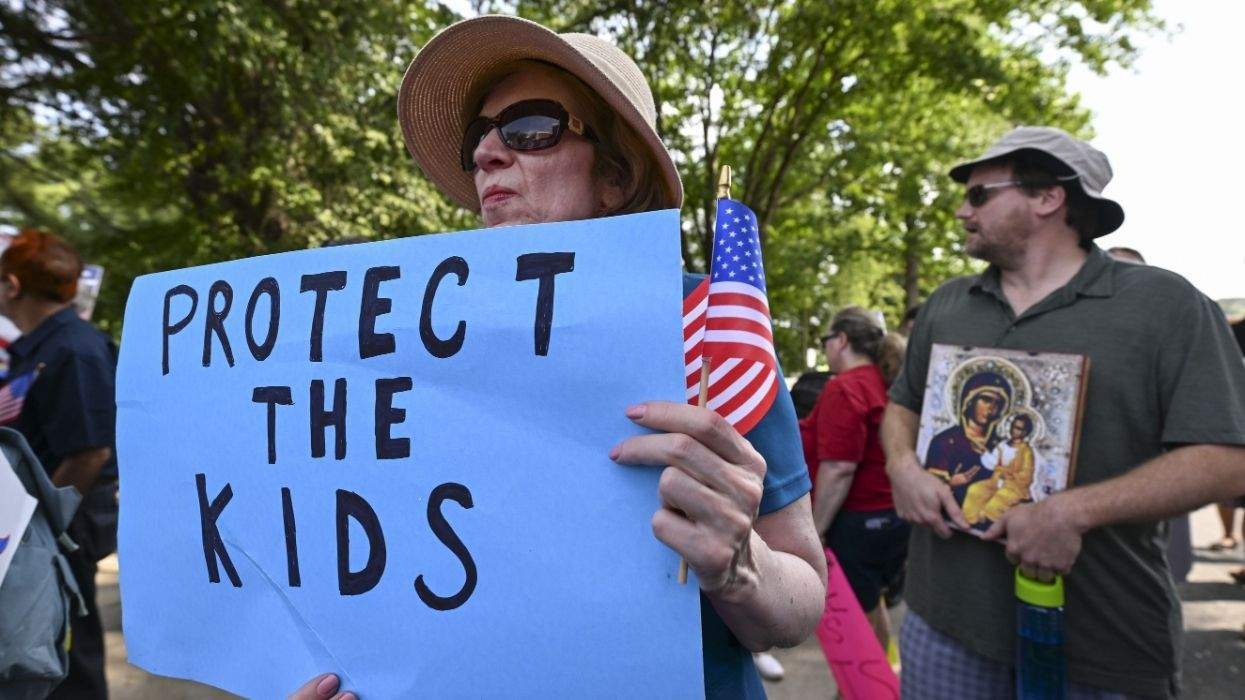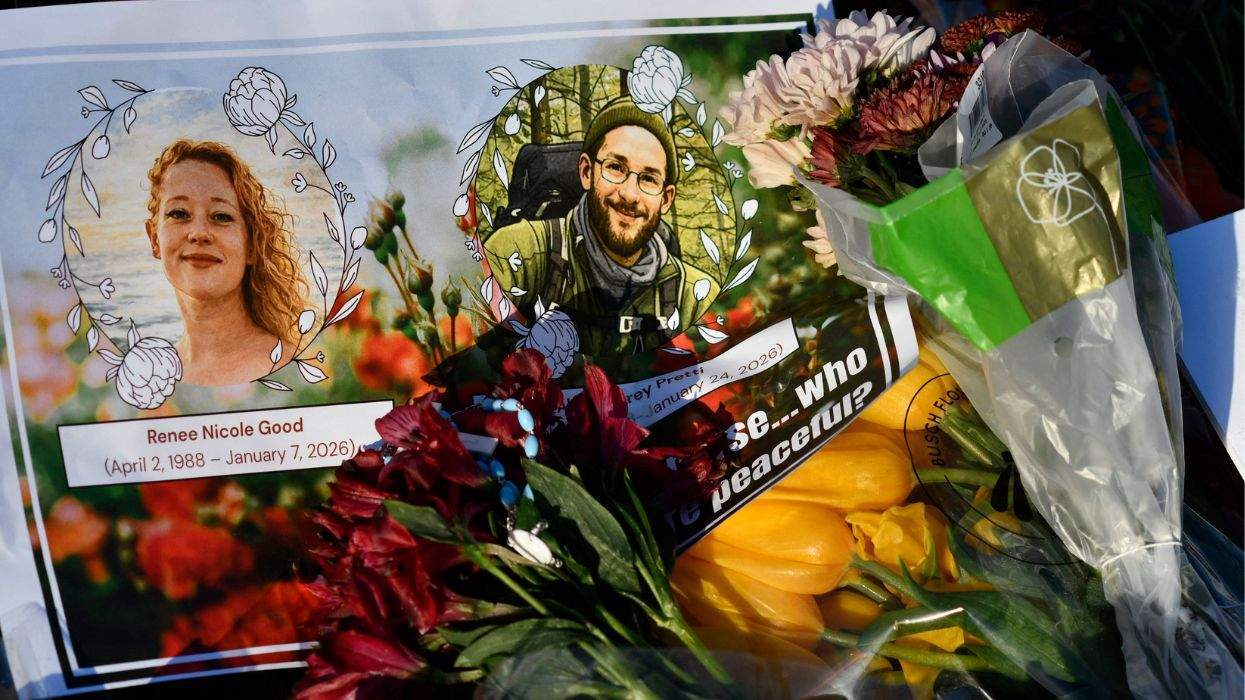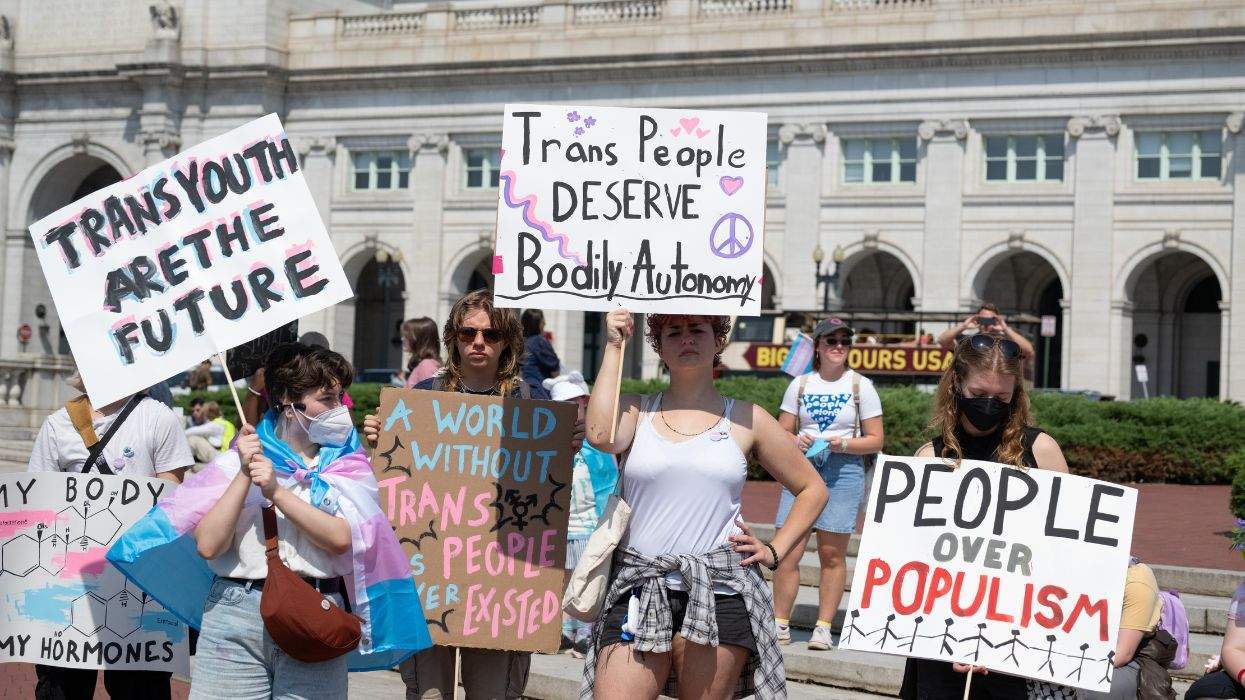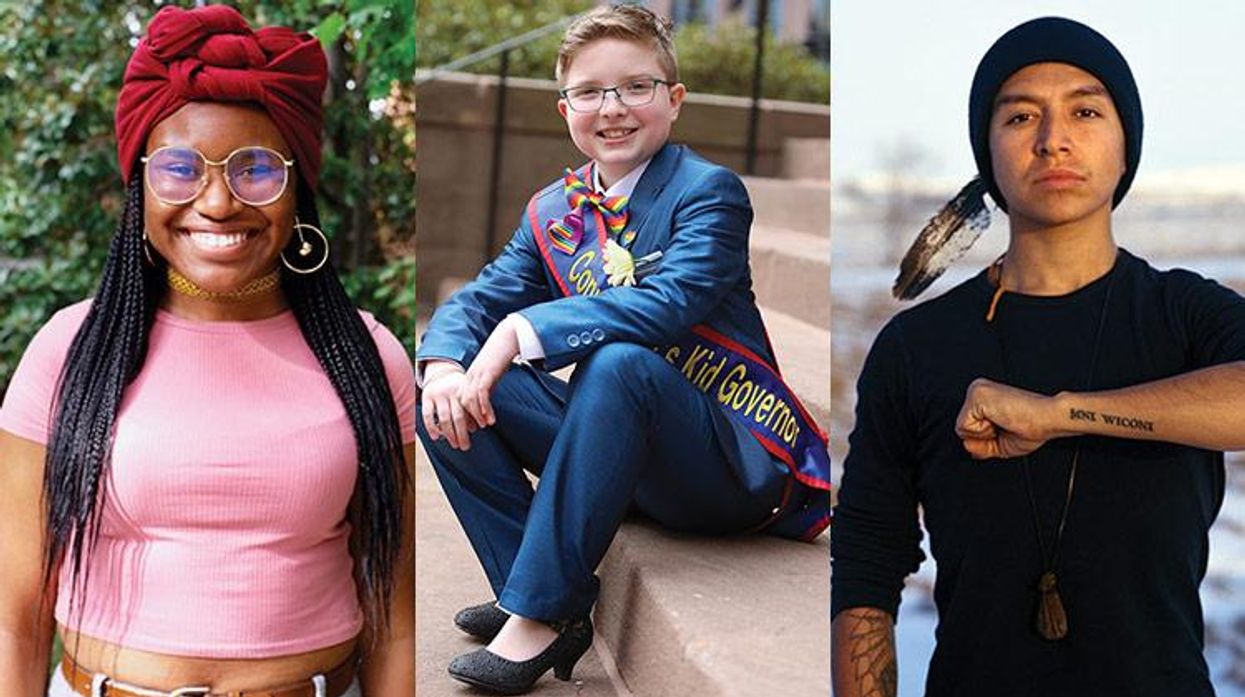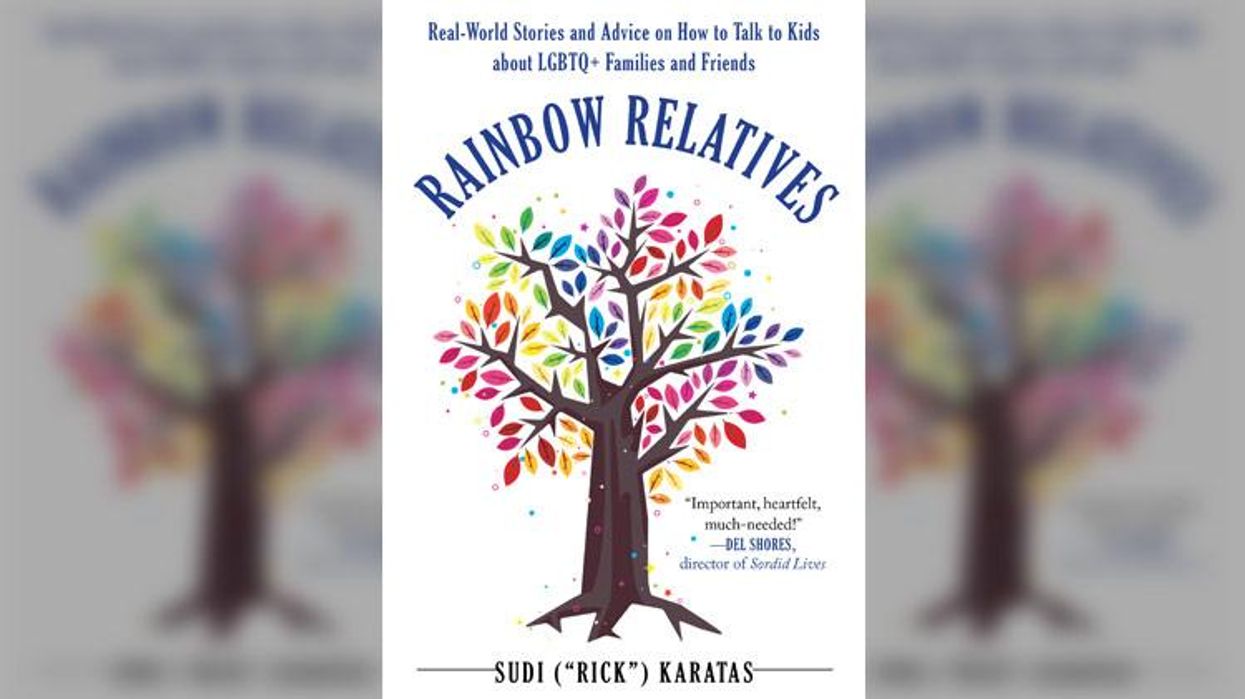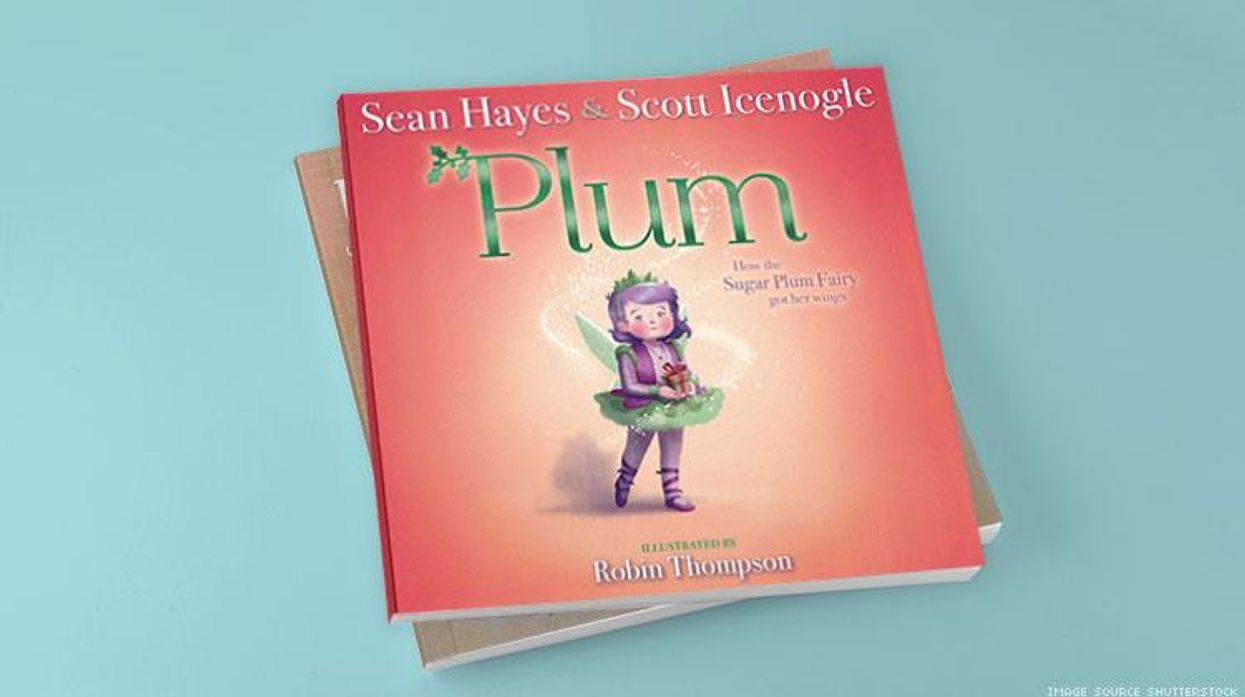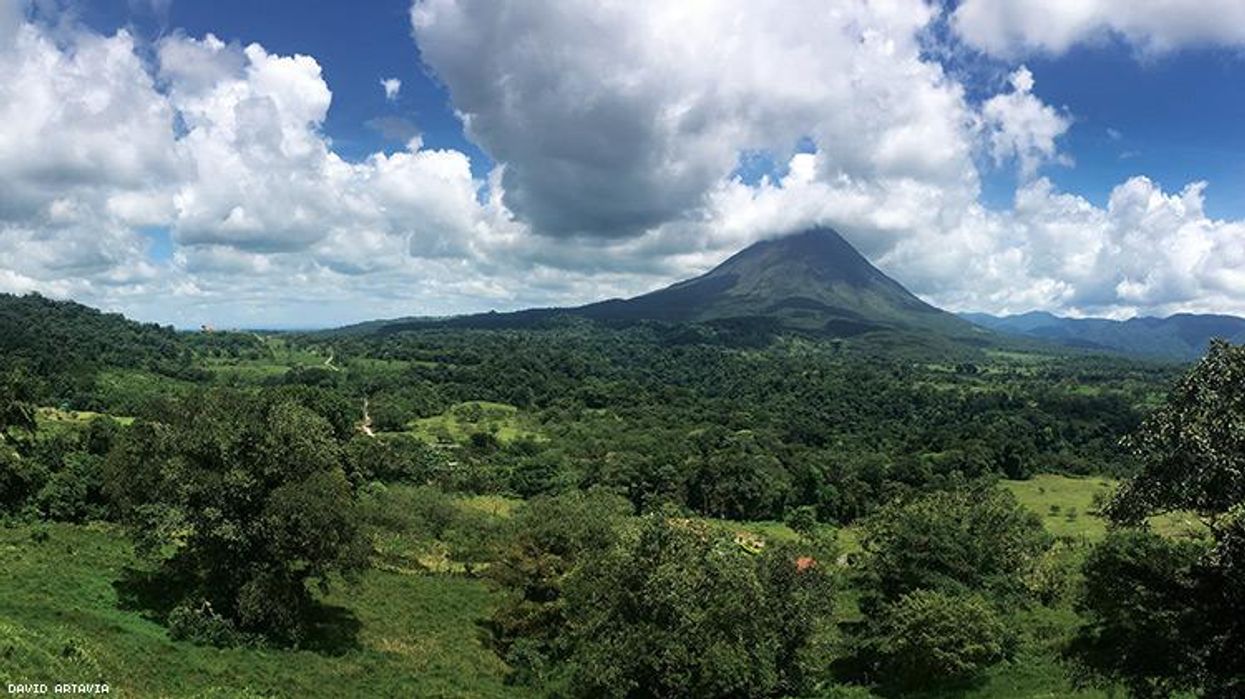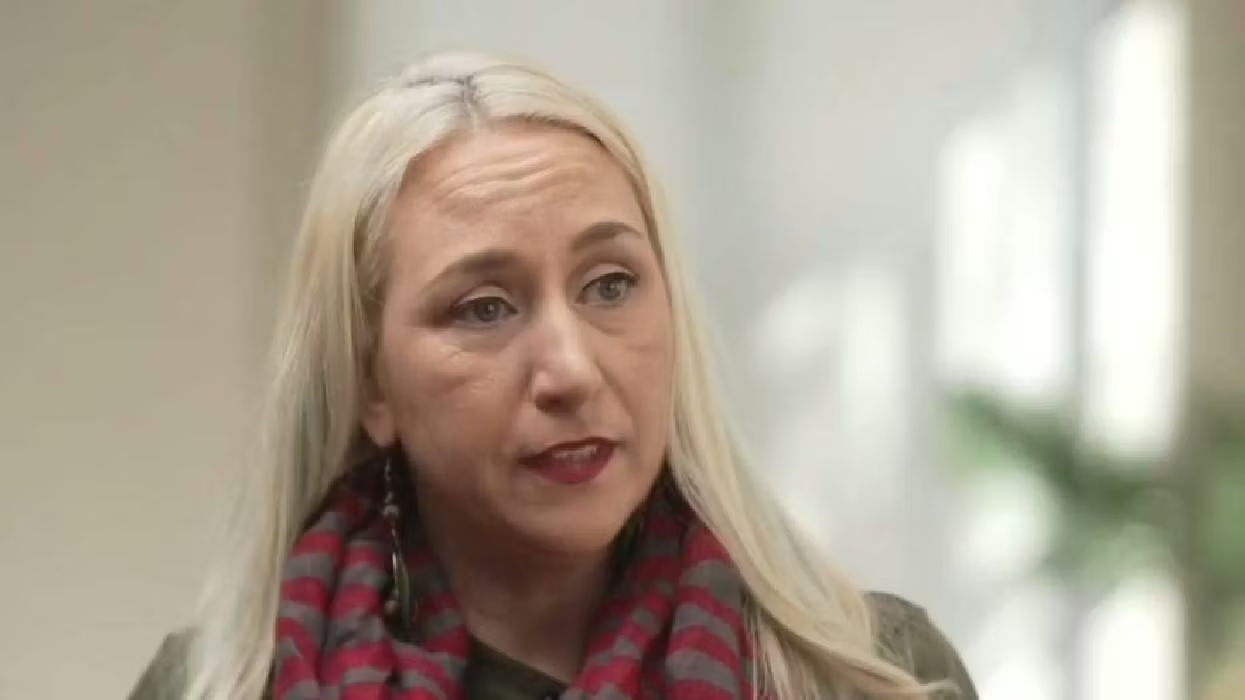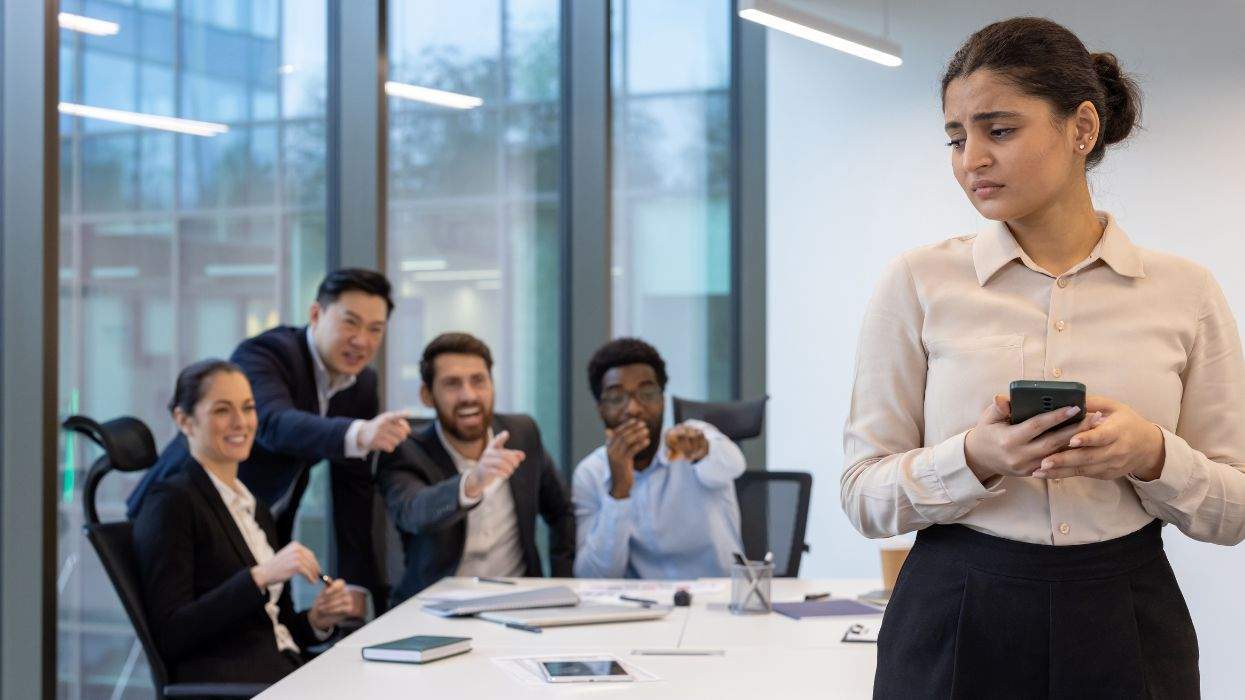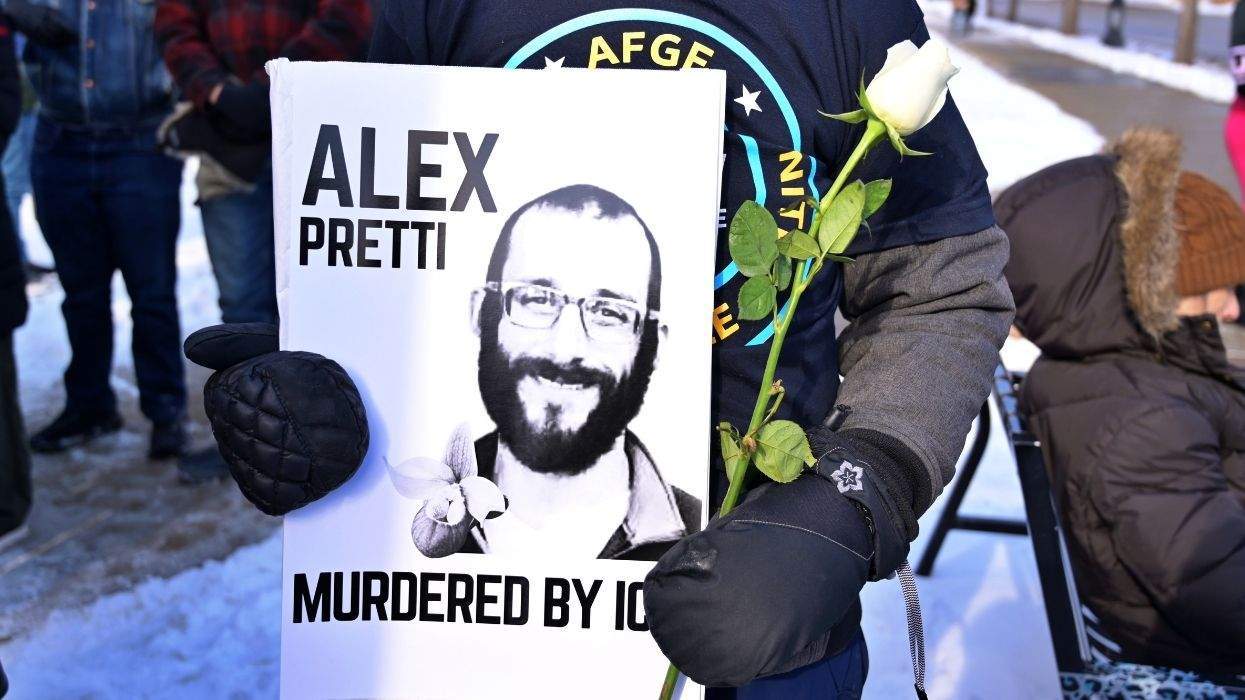If Kim Coco Iwamoto is elected as lieutenant governor in Hawaii, not only will she become the highest-ranking out transgender elected official in the nation, she'll also make history as the first out trans person to serve as a lieutenant governor. The Kauai-born Iwamoto announced her candidacy last November, just days before LGBT candidates like Danica Roem and Andrea Jenkins won historic victories into public offices across the U.S. Iwamoto took a minute from the campaign to discuss her potentially history-making election, how being a foster parent first inspired her to run for office, and her early work with Transexual Menace, one of the original direct action groups for trans rights.
The Advocate: You were a member of the Hawaii State Board of Education in 2006, which made you one of the first out trans people to win a statewide election.
Iwamoto: When I was campaigning, the Victory Fund called me and asked how they could help. At that time, we were just coming off of the marriage debate and all of this fiery rhetoric, so I didn't want that to start getting directed at me. I have a lot of ties to the local community. I'm born and raised in Hawaii, and it's really important for the voters to recognize that it's just me -- one of them, one of their own -- running for office, and I'm not a pawn of the larger LGBT agenda. That's how it gets framed sometimes. Here in Hawaii, the LGBT movement is often seen as an outsider issue.
What made you initially decide to run?
It was because I was a foster parent to [out] trans and gay teenagers, hearing them share how they were bullied and harassed at school. They asked me to testify to the Board of Education and say, "As a parent of a student in your public school system, my child is not safe and their friends aren't safe. What are you going to do about it?"
Looking across the table at all of these elected Board of Education members, it hit me that I needed to make sure these students had a voice where the decisions were being made, and that they had an advocate on the inside.
We had a very grassroots effort. We had very little money and just did a lot of sign waving. In Hawaii, we stood on the side of a major six-lane highway and we waved down at cars in the morning as they were driving to and from work. We were just there smiling and letting them see me, the candidate, and making eye contact.
Beyond stepping into the governor's seat if they resign or die, what is the role of the lieutenant governor?
In Hawaii, it's pretty minimal. You're responsible for processing documents like name changes, you maintain the public notice database. It's very minimal, yet you're provided a lot of staff, so I actually see it as an underutilized opportunity. I'm trying to build a movement that's going to turn the lieutenant governor's office into the people's office.
I'm surprised that you've said that your trans identity did not come into play in your last election. When Danica Roem was elected in the Virginia House of Delegates last year, it was such a big part of the election there.
On my election night, the local media was like, "Oh, whatever." It wasn't until the national media picked it up... that they chased me around the next two days.
I didn't realize until recently that you were part of the Transexual Menace.
That was early in the movement. I happened to fall into this group of activists and I'm like, "What is this group, Transexual Menace?" What we did was bring to light all of the discrimination that trans people were facing. We took activism into the streets in Washington, D.C., where a woman named Tyra Hunter was hit by a car while on a crosswalk. When the paramedics came to treat her injuries, they realized she was trans and stepped away from her body. She bled out and died.
So we mobilized our group in New York City. We got on the train, we went down there, and we picketed because it felt like our lives didn't matter. We wanted to make sure that the D.C. mayor and all of the people who were a part of this decision to abandon service of this woman because she was trans knew that we are watching. We didn't want the media to drop this, so we took it to the streets. We also did that when Brandon Teena was murdered in Nebraska.
The movie Boys Don't Cry was famously made about Brandon.
Yes. We kept doing all of these street protests, and that's where I learned how to be an activist and the importance of grassroots organizing. I decided to go to law school to figure out the law so that it couldn't be used against us, and to figure out how to change the law to protect us. I don't get to talk about that very often because, as I mentioned earlier, that kind of activism doesn't really resonate with people in Hawaii, yet I think people want somebody who knows the fight, who's had to fight, and will fight for them and alongside of them.
Jeffrey Masters documents the stories of the LGBT community on the Advocate podcast LGBTQ&A for which he spoke with Iwamoto. Hear more at apple.co/2CHrtyF. Follow Masters on Twitter @JeffMasters.

